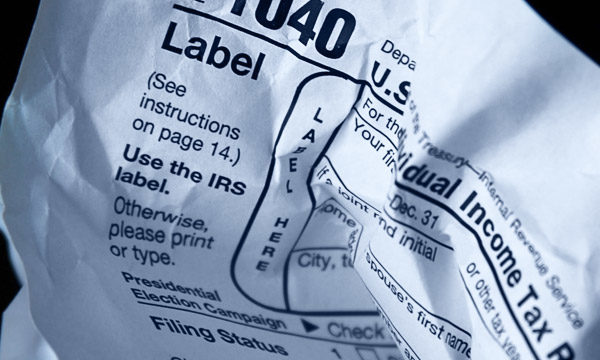
For those interested in state tax policy and data, the weekly meetings of the Task Force on Structural Changes in Budget and Tax Policy might be something akin to nirvana. If you’re not, you just might want to steer clear. But the information that’s been provided so far does present a pretty comprehensive backdrop about our state tax policies that at some point we as citizens need to understand.
In the weeks ahead, we’ll take a closer look at various aspects of our tax structure to try to provide a little context to the tax restructuring discussion that Louisiana is undertaking. We might start by taking a broad look at Louisiana and where we fit in with the rest of the country and our peer states.
One of the first things that stands out is that Louisiana is a low tax state – very low. By just about any measure our overall tax burden is among the lowest in the country. In fact, according to the Tax Foundation, a Washington D.C. think tank:
- Louisiana’s Tax Freedom Day – the date into the year where citizens of a state have collectively earned enough money to pay all of their federal state and local taxes – is April 7. That’s the third earliest date in the nation. It’s worth noting that Texas is number 20 and Florida is 29th.
- Louisiana also has a low overall state/local tax burden. We come in at #45 in the country. That’s slightly better than Texas and significantly lower than just about every other state in our region.
- But, after the recent special session, the average rate of our state and local sales taxes jumped to the highest in the nation – 10-percent. Making that even worse is the fact that we have a confusing, inconsistent, cumbersome and ultimately burdensome sales tax collection system that makes it far more complicated for sellers to do business in Louisiana than virtually any other state.
- And, while we have a clearly low tax burden, we have a mediocre tax climate. The Tax Foundation ranks our state business tax climate at number 37. Texas in number 10. That’s not because our taxes are high, it’s because our tax structure is overly complicated and not transparent.
You get a clearer picture of that when you consider our income taxes. Take personal income taxes, for example. When you look at Louisiana’s top rate of 6%, it’s not the highest in our region, but it is at the high end. The problem is that relatively high rate masks the fact that we have many generous deductions and exemptions that most other states don’t have and extremely wide separation of brackets. Both of those things greatly reduce the actual taxes that individuals pay even though our rate is somewhat high.
So, for instance, a household making $120,000 would be within the top 10% of taxpayers in Louisiana and a portion of their income would be taxed at the highest rate of 6%. But when you account for all of our various deductions and exemptions and the structure of our tax brackets, the effective rate that household is paying is actually only 2.4%. That begs the question of why we have such high tax rates on paper when what we’re really paying is so much less. That’s a reform we can make.
What the data provided to the task force also show is that when we talk about the hundreds of tax credits, exemptions and deductions that Louisiana allows and the $8 billion they’re worth, you have to dig a little deeper to get the true picture. For instance, just over $5 billion of those tax breaks are attached to individual income taxes and sales taxes. And most of the big ticket items are either things taxpayers hold near and dear or items that for one reason or another you just don’t want to tax or in some cases can’t tax because of federal law.
For instance, exemptions or deductions for federal taxes paid, itemized deductions, personal and standard deductions and social security benefits alone total close to $1.5 billion. Sales tax exemptions on food, drugs, home utilities and fuels come to another $1.2 billion.
By comparison, the total value of the various economic development incentives managed by Louisiana Economic Development is about 5% of the $8 billion total, or about $412 million. And about half of that is attributable to just one item – the motion picture tax credit. So is it important to take a close look at those exemptions? Of course. But we need to understand how they fit into the scheme of things and look at them in a context that, admittedly, can be difficult for the average citizen to decipher.
Louisiana’s own Russell Long once said, “A tax loophole is something that benefits the other guy. If it benefits you, it’s tax reform.” Another quip goes, “People who complain about taxes can be divided into two classes: men and women.” Both of those quotes show why it’s so difficult to talk about taxes. But we need to.
Louisiana must make some long-term structural changes to its tax system that will position us better for the future we want to see. If we do that, however, we know there will be winners and losers. That’s pretty much unavoidable. But having the data, looking at how we compare with other states and understanding how we got to where we are can all add clarity – and perhaps some sense of objectivity – to a difficult conversation we very much need to have.
